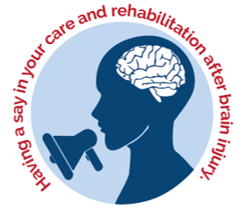Understanding what self-advocacy means after brain injury
Understanding what self-advocacy means after brain injury: Having a say in your care and rehabilitation

A person who sustains a brain injury is likely to experience many transitions or changes in their care and rehabilitation, as they move between different settings and health services. Where transitions are not well supported, there is a risk that the person may feel their needs and preferences are overlooked or don’t matter.
Across two phases, this project aims to understand how well people with a brain injury feel they can tell healthcare and disability providers what they want and need as they move between different hospitals and services. In the first phase, people with brain injury and their family members will be interviewed at time of discharge and four months after discharge to explore perceptions of their ability to have a say in their care and rehabilitation.
In the second phase, focus groups will be conducted with clinicians, people with brain injury and family members, to design a new tool or way of supporting people to communicate their needs and choices as they move between different settings. The project outcomes are expected to improve person-centred care in rehabilitation after brain injury.
The project is being conducted by The Hopkins Centre and is funded by the Metro South Health Research Support Scheme, led by Dr Annerley Bates (Brain Injury Rehabilitation Unit, Princess Alexandra Hospital and Hopkins Centre Member) and Professor Tamara Ownsworth (The Hopkins Centre, Griffith University).
Inserted image is the project logo, created by Dr Jessie Mitchell.
Tags: Self Advocacy, Brain Injury, Rehabilitation
Related Articles
- Bold Ideas Better Solutions Symposium 2017
- World-leading centre for rehabilitation and disability research opens
- Improving the ability of employers to communicate with brain injured workers
- THC Researcher awarded GU New Researcher Grant for study in social and emotional wellbeing
- ABI TRS celebrates their second anniversary of clinical service

